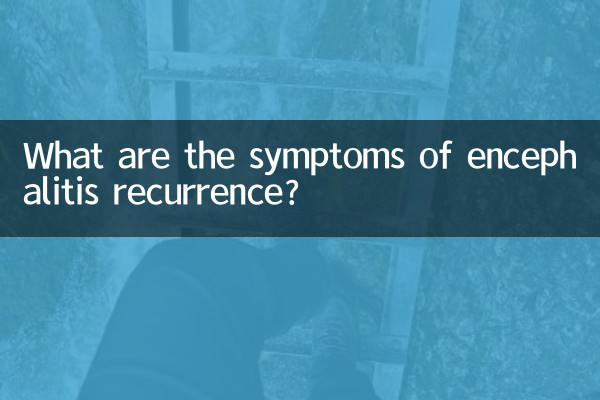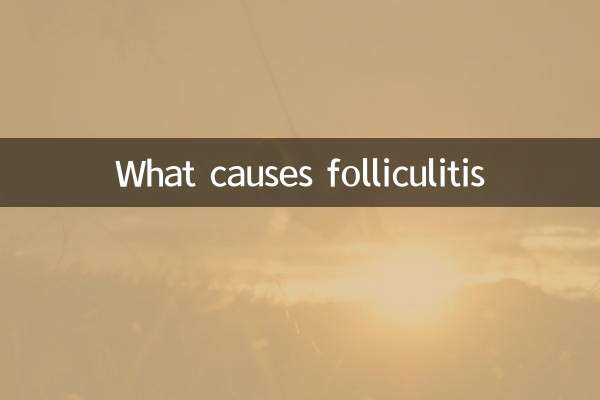What are the symptoms of encephalitis recurrence?
Encephalitis is an inflammation of the brain caused by viruses, bacteria, or other pathogens that can be life-threatening in severe cases. In recent years, the recurrence of encephalitis has attracted widespread attention. This article will combine the hot topics and hot content on the Internet in the past 10 days to analyze in detail the symptoms, causes and countermeasures of the recurrence of encephalitis, helping readers better understand and prevent this disease.
1. Common symptoms of recurrence of encephalitis

Symptoms of a recurrence of encephalitis are similar to those of the first episode, but may be more severe. The following are common symptoms:
| Symptom type | Specific performance |
|---|---|
| Fever | Increased body temperature, possibly with chills |
| headache | Severe headache that is difficult to relieve |
| disorder of consciousness | Drowsiness, coma, or confusion |
| neurological symptoms | Seizures, weakness or numbness |
| Abnormal behavior | Mood swings, irritability, or depression |
2. Causes of recurrence of encephalitis
Relapse of encephalitis may be related to the following factors:
| Reason | Description |
|---|---|
| Incomplete treatment | Pathogens not completely eliminated with initial treatment |
| low immunity | The patient's immunity decreases, causing the pathogen to become active again |
| chronic infection | Pathogens lie dormant for a long time, waiting for opportunities to relapse. |
| Other disease effects | Chronic diseases such as diabetes and AIDS increase the risk of encephalitis |
3. How to prevent recurrence of encephalitis
Preventing the recurrence of encephalitis requires a multi-faceted approach:
| Precautions | Specific methods |
|---|---|
| Standard treatment | Complete the course of treatment strictly in accordance with the doctor’s recommendations |
| Enhance immunity | Balanced diet, moderate exercise, and adequate sleep |
| Regular review | Check brain health regularly and detect abnormalities promptly |
| avoid infection | Pay attention to personal hygiene and avoid exposure to pathogens |
4. Treatment plan for recurrence of encephalitis
Once encephalitis recurs, seek medical treatment promptly. Treatment options usually include:
| Treatment | Description |
|---|---|
| Antiviral/antibacterial drugs | Choose the right drug based on the type of pathogen |
| hormone therapy | Reduce brain inflammatory response |
| supportive care | Maintain vital signs, such as rehydration, oxygen inhalation, etc. |
| Rehabilitation | Physical or psychological treatment for sequelae |
5. Recent hot topics and recurrence of encephalitis
In the past 10 days, discussions about the recurrence of encephalitis have mainly focused on the following aspects:
| hot topics | Content summary |
|---|---|
| COVID-19 sequelae and encephalitis | Some people who have recovered from COVID-19 have symptoms of recurrence of encephalitis |
| Cases of recurrence of encephalitis in children | Recurrence of encephalitis in children has been reported in many places, causing concern among parents |
| New detection technology | Genetic testing technology helps early diagnosis of encephalitis recurrence |
6. Summary
Relapse of encephalitis is a serious health problem with variable and potentially life-threatening symptoms. By understanding the causes of recurrence, taking preventive measures and timely treatment, the risk of recurrence can be effectively reduced. The recent hot topic about the recurrence of encephalitis also reminds us that this disease needs more attention and research. If you or someone around you develops symptoms, please seek medical advice promptly.

check the details

check the details